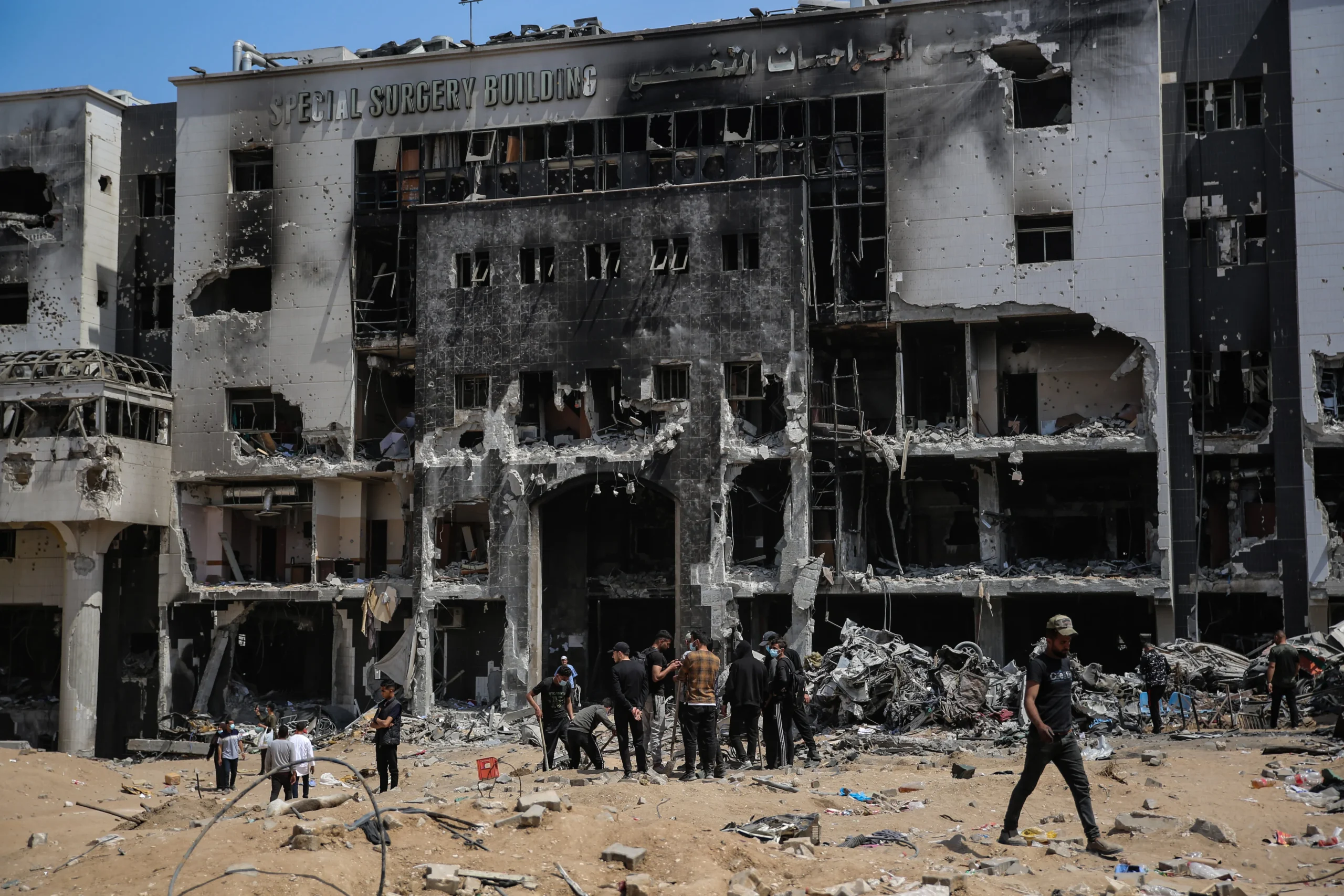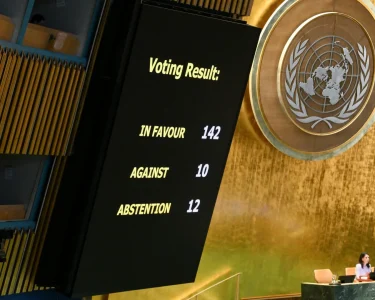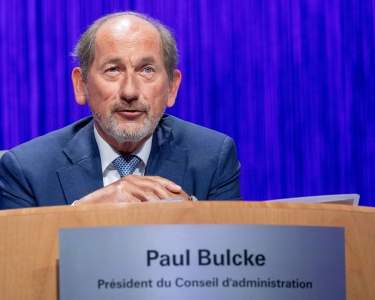- Summary
- Gaza hospitals fear fuel shortages will lead to shut downs
- Some doctors performing surgery without electricity
- More than 600 attacks on hospitals during war, WHO says
 Wounded Palestinians lie on beds at Al-Shifa Hospital, which Gaza’s health ministry says is at risk of shutting down due to the Israeli blockade of fuel, in Gaza City July 9, 2025.
Wounded Palestinians lie on beds at Al-Shifa Hospital, which Gaza’s health ministry says is at risk of shutting down due to the Israeli blockade of fuel, in Gaza City July 9, 2025.
While Prime Minister Benjamin Netanyahu discussed the fate of Israeli hostages in Gaza with U.S. President Donald Trump in Washington, Al Shifa’s patients faced imminent danger, doctors there said. The threat comes from “neither an airstrike nor a missile — but a siege choking the entry of fuel,” Dr. Muneer Alboursh, Director General of the Gaza Ministry of Health, told reporters.
The shortage, he added, is “depriving these vulnerable people of their basic right to medical care, turning the hospital into a silent graveyard.”
Israeli airstrikes and relentless bombardments have devastated Gaza’s hospitals. The narrow strip of land had already been under a prolonged Israeli-led blockade before the war between Israel and the Palestinian military group Hamas erupted 21 months ago.
 A wounded Palestinian lies at Al-Shifa Hospital, which Gaza’s health ministry says is at risk of shutting down due to the Israeli blockade of fuel, in Gaza City July 9, 2025.
A wounded Palestinian lies at Al-Shifa Hospital, which Gaza’s health ministry says is at risk of shutting down due to the Israeli blockade of fuel, in Gaza City July 9, 2025.
Meanwhile, patients in need of medical care, food, and water continue to bear the brunt of the crisis.
According to the World Health Organization (WHO), more than 600 attacks on health facilities have been recorded since the conflict began, though the organization has not assigned blame. WHO describes Gaza’s healthcare system as being “on its knees,” facing severe shortages of fuel and medical supplies, and overwhelmed by a constant influx of mass casualties.
Only half of Gaza’s 36 general hospitals are partially operational, the United Nations reports.
Dr. Muhammad Abu Salamiyah, Director of Al Shifa Hospital, warned of a looming humanitarian catastrophe, citing the fuel crisis as a direct threat to hospital operations, desalination plants, and water supply systems. He accused Israel of “trickle-feeding” fuel to Gaza’s medical facilities.
 More than 400 bodies were found at mass graves around two Gaza hospitals, according to the Palestinian Civil Defense and the United Nations. At left, Palestinian health workers recover bodies at Nasser Hospital on April 21. At right, bodies are found in the courtyard of Al-Shifa Hospital on April 16.
More than 400 bodies were found at mass graves around two Gaza hospitals, according to the Palestinian Civil Defense and the United Nations. At left, Palestinian health workers recover bodies at Nasser Hospital on April 21. At right, bodies are found in the courtyard of Al-Shifa Hospital on April 16.
OXYGEN RISK
Abu Salamiyah said the hospital’s dialysis department had been shut down to conserve electricity for the intensive care unit and operating rooms, which can’t be without electricity for even a few minutes.
“Oxygen stations will stop working. A hospital without oxygen is no longer a hospital. The lab and blood banks will shut down, and the blood units in refrigerators will spoil,” Abu Salamiyah said, adding that the hospital could become “a graveyard for those inside”.
 Patients and displaced people line a corridor in Al Shifa hospital on Friday.
Patients and displaced people line a corridor in Al Shifa hospital on Friday.
“You can have the best hospital staff on the planet, but if they are denied the medicines and the pain killers and now the very means for a hospital to have light … it becomes an impossibility,” said James Elder, a spokesperson for U.N. children’s agency UNICEF who recently returned from Gaza.
The latest round of bloodshed in the decades-old Israeli-Palestinian conflict was sparked in October 2023 when Hamas-led militants attacked southern Israel, killing about 1,200 people and taking 251 hostages, according to Israeli figures.
Gaza’s Health Ministry reports that Israel’s response has killed more than 57,000 Palestinians. The war has also triggered a hunger crisis, internally displaced nearly the entire population of Gaza, and led to accusations of genocide and war crimes—claims Israel firmly denies.




 A man sits outside the destroyed al-Shifa Hospital in Gaza City on 17 September 2024.
A man sits outside the destroyed al-Shifa Hospital in Gaza City on 17 September 2024.


